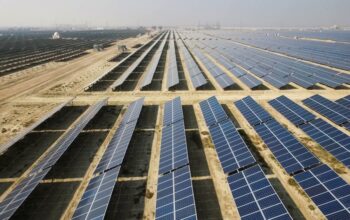By Staff Reporter
KARACHI: The rupee plunged over eight percent against the dollar on Thursday, posting a new all-time low of Rs290.18, after the central bank apparently allowed a freefall in the currency to adjust its real market value – a precondition to unlock a vital bailout from the International Monetary Fund (IMF).
The rupee has also been under pressure on several delays in a deal between Pakistan and the IMF, which parties have been negotiating since the beginning of the last month.
A move to a market-based currency exchange rate regime is one of the actions the IMF wants Pakistan to complete to clear its 9th review, which would release a funding tranche of over $1 billion that has been delayed since late last year.
Analyst Mohammad Sohail at Topline Securities said the fresh plunge was mainly because of the uncertainty in the currency market regarding the delay in funding from the IMF.
“From market forces in January to real market forces in February. Challenging times,” Sohail tweeted.
Traders said the IMF asked the central bank to bring the rupee value in the interbank market at par with the black currency market.
They said several traders reverted to the black market to meet their dollar requirements as the US currency is not available in the interbank market.
Zafar Paracha, secretary general of the Exchange Companies Association of Pakistan (ECAP), said “the IMF had asked Pakistan to trade the dollar at the current Afghan trade rate”.
“In other words, they had said our actual rate should be as in the grey market rate, not the interbank rate or the open market. They are right as the availability and trade of dollars taking place right now is only in the grey market,” Paracha said.
Traders said the value of the rupee dropped mainly due to the delay in the revival of the IMF’s bailout talks, amid depleting foreign exchange reserves, but expected it to stabilise as the negotiations pick up again.
The South Asian economy has been in turmoil, and desperately needs the IMF deal to unlock other bilateral and multilateral external financing. The country is seeking a crucial installment of $1.1 billion from the fund — part of its $6 billion bailout package — to avoid default.
Pakistan is currently grappling with one of the country’s worst economic crises amid dwindling foreign exchange reserves. That has raised fears that Pakistan could default, although Prime Minister Shehbaz Sharif insists it pulled the country from the brink of the default when it took over last year.
The central bank foreign exchange reserves have fallen to hardly cover three weeks of imports.
Analyst said the rupee’s decline is a sign that Pakistan was close to securing the much-needed loan from the IMF.
Copyright © 2021 Independent Pakistan | All rights reserved




